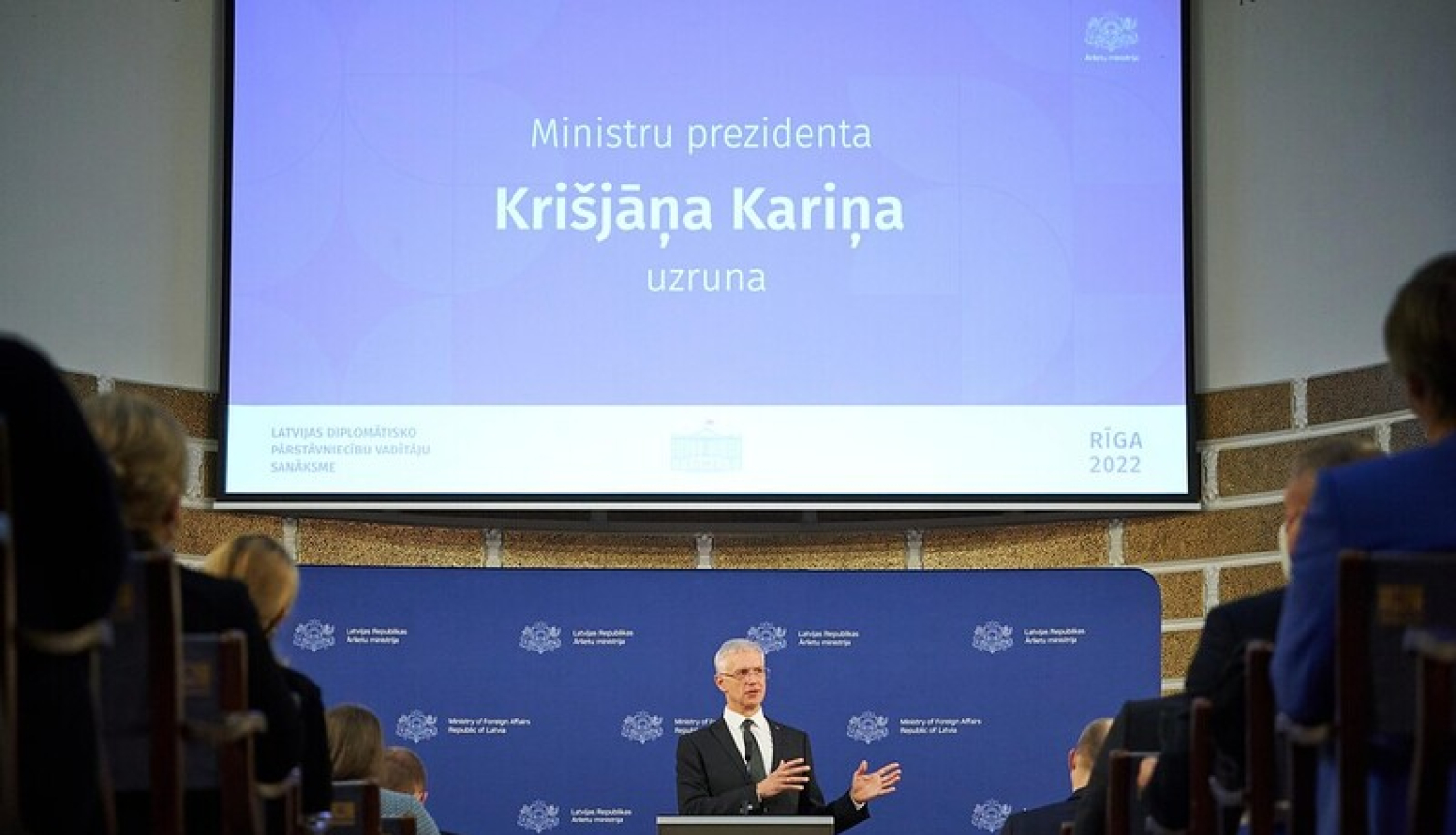In his address to the heads of diplomatic representations of Latvia abroad and the ambassadors of Latvia residing in Rīga at the annual meeting on Monday 10 January, Prime Minister Krišjānis Kariņš expressed gratitude to the Foreign Service for its contribution to defending the interests of the state of Latvia during these challenging times. The Prime Minister stressed that our country’s foreign policy course remains unchanged – we need to further strengthen cooperation and relations with allies in the European Union and NATO.
“In today’s changing environment, our major foreign policy goal remains the same – we have to invest our energy in work with our allies in the European Union and NATO in order to explain and inform about the current situation in our region. Since the restoration of independence, we have grown as a country and are equal partners that can be relied upon," stressed K. Kariņš.
The Prime Minister stated that Latvia, faced with a hybrid attack by the Belarusian regime last year, was able to quickly take decisions and safeguard its border, while explaining the decisions and situation to its partners in the EU and NATO. As a result, the EU is currently working on the development of a framework for border crossings in situations of hybrid attacks.
K. Kariņš called on the diplomats to encourage new investments in the Latvian economy, especially in the field of production and export, in order to support the implementation of smart reindustrialisation. “Our work is bearing fruit – last year was record-breaking in terms of investment attraction and exports. We need to continue our efforts in a determined way in order to achieve even faster development of the manufacturing sector and increase the well-being of the population," said K. Kariņš.
During the meeting, K. Kariņš also addressed current issues on the EU agenda – the French Presidency and its priorities, the EU’s climate policy, energy policy and its geopolitical aspects, as well as other topical foreign policy issues.



